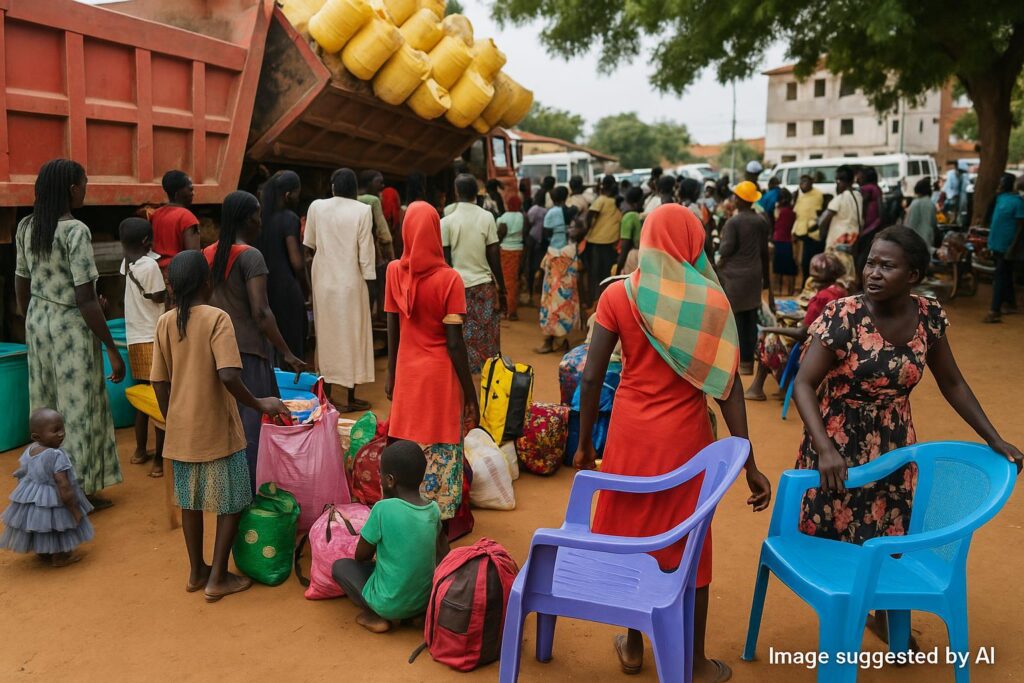Surge of Returnees Reaches Torit
Torit town in Eastern Equatoria woke to an emotional scene this week as 367 South Sudanese stepped off dust-caked trucks and footpaths, ending a gruelling escape from Kenya’s Kakuma Refugee Camp after abrupt food-ration reductions.
Local officials confirmed the arrivals on Tuesday and Wednesday, noting that most travelers belonged to categories three and four, the groups whose assistance the World Food Programme suspended in September amid global funding gaps.
Perilous 600-Kilometre Walk
Returnees recounted walking nearly 600 kilometres from Kakuma through Lokichogio to the Nadapal frontier, scraping water from dry riverbeds and sleeping in thorn thickets.
Mothers carried toddlers on their backs; older children pushed wheelbarrows filled with pots and battered mattresses.
Several witnesses said an unknown number collapsed from hunger and heat along the arid corridor, though community leaders declined to give figures until verification teams finish tracing.
Kakuma Aid Cuts and Camp Unrest
The WFP cut monthly bundles by up to 80 percent for refugees deemed self-reliant, and by 60 percent for vulnerable households, after donor contributions fell to their lowest level in a decade (WFP update, August 2023).
Tension simmered for months; a protest in June turned deadly, leaving one refugee dead and several police officers injured, underscoring how food insecurity can ignite camp unrest (Human Rights Watch 2023).
Appeals for Rapid Assistance in Torit
Civil society organiser Jimmy Kilang urged state authorities to secure safe passage for thousands still on the road and to dispatch emergency water, high-energy biscuits and transport for the weakest.
Deputy RRC commissioner Khadija Clement Kong said most arrivals were quickly absorbed by relatives, yet admitted that shelter, sanitation and schooling now face fresh pressure.
Torit municipal officials pledged to allocate plots on the town’s northern edge and requested partner NGOs to deploy tents before the rainy season sets in next month.
Regional Policy Outlook on Refugee Returns
Analysts note that voluntary returns, even amid hardship, signal confidence in relative calm South Sudan has enjoyed since the 2018 revitalised peace agreement, though they caution that basic services remain fragile.
Kenya hosts over half a million refugees; without new donor pledges, aid agencies warn of deeper cuts that could push more families to undertake dangerous journeys home or toward other frontiers (UNHCR data, 2023).
South Sudan’s government says planned reintegration centres near the borders will blend humanitarian relief with livelihood training, a shift officials describe as “dignity-based assistance” rather than open-ended camp support.


